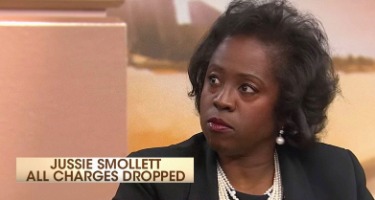Fletcher Tilton: Mark L. Donahue (Real Estate Law, 2012) presented a 12-point plan for crowd and traffic control to the License Commission for the first marijuana retail shop in Worcester, Massachusetts. Donahue’s plan specifies the store’s hours and proposed parking areas, as well as receiving police details prior to open. The store, called Good Chemistry, was approved for retail sales by the Cannabis Control Commission in February.
Prince Lobel Tye: Jeffrey J. Pyle (First Amendmnet Law, 2018) represented The Boston Globe, STAT, WBUR, Reuters, The Wall Street Journal, and The New York Times in a motion to release in full a document containing information that Purdue executives and the Sackler family was aware of the risks that their product, the opioid medication OxyContin, was dangerous—and continued to put it on the market. At the time of the motion, the document was only partially made public and heavily redacted.
Sasson Turnbull Ryan & Hoose: David P. Hoose (Criminal Defense: General Practice; Criminal Defense: White-Collar, 2005) represented Lee Hutchins Sr., a man subject to excessive force by a Springfield police officer in 2013. Hitchens was awarded $250,000 by a jury after police officer Thomas Hervieux struck him with a baton while investigating a domestic disturbance complaint. That incident was the officer’s eighth case involving excessive force—but none of those were presented to the city’s Community Police Hearing Board. "In reality, nothing happens to officers who are credibly accused of misconduct,” Hosoe said. “This happens primarily because the city will not sustain any complaint where there is a ‘material conflict in the evidence.’ That is virtually every case.”
Honorable Mention
Bulkley Richardson and Gelinas: Daniel J. Finnegan (Administrative/Regulatory Law; Construction Law; Litigation – Construction, 2006) co-chaired a public seminar with the Massachusetts Bar Association coinciding with the opening of the $960 million MGM Springfield casino. The seminar was open to the public and intended as “a case study of a successful development project,” according to the bar association. The panel discussed all aspects of the casino’s development, including zoning law, gaming permits, and municipal logistics, like transportation and utilities. The event was free for bar members and $50 for all other attendees.
Chisholm Chisholm & Kilpatrick: J. Scott Kilpatrick (Litigation – ERISA, 2016) joined the board of directors of the Roger Williams University School of Law in Rhode Island. “Scott is a founding partner of one of the nation’s finest veterans’ benefits law firms, he has held numerous leadership positions in the bar, and he has a sterling reputation,” said Michael J. Yelnosky, RWU law school dean. “He and his partners at Chisholm Chisholm & Kilpatrick regularly hire RWU Law alumni, and their generosity has made possible our veterans disability appeals field clinic.”
ITN Feature
Foley Hoag: Jeffrey L. Quillen (Venture Capital Law, 2008) spoke to the Boston Globe about a proposed change in the wording of standard legal documentation for venture capital businesses, wherein the most valuable member of the business is legally termed a “key man.” The gendered implications of this
wording have some in the venture capital world calling for change. In the venture capital world, “key man” or “key men” delineate important members of a business. “Key men” may be identified in contracts and required to join a new business after a buy-out, to give one example.
This small discrepancy in wording points to a wider issue in the venture capital field, executives and specialists in the field told the Globe. According to the advocacy group All Riase, only 9 percent of venture capitalists in the United States are women.
“It’s not overt sexism, and it’s nothing that’s designed to necessarily make you feel excluded, but there’s a twinge of ‘I don’t belong’ when you see something like this,” Sarah A. Downey of a Cambridge-based venture capital firm, Accomplice, told the Globe.
The question is whether changing the phrase to something more inclusive, like “keyperson,” could create any legal issues, given the prevalence of “key man” in VC documentation. Quillen argued that it wouldn’t.
“It’s a relic,” Quillen told the Globe about the “key man” phrase. He said that there was no legal reason for the phrase to specify gender.

































